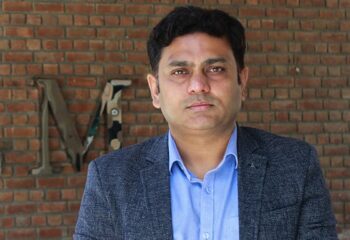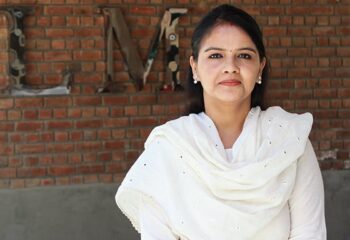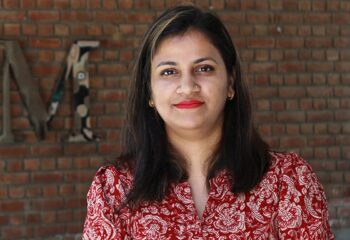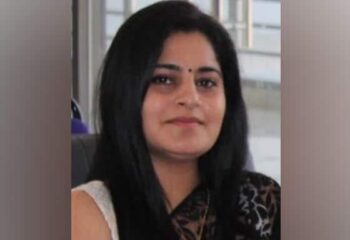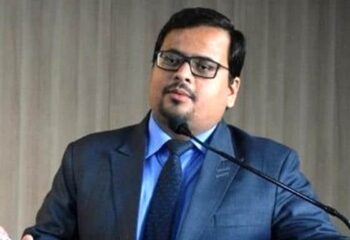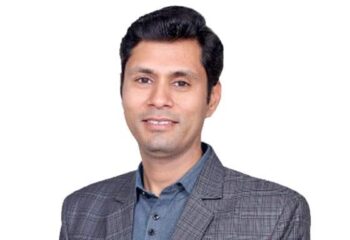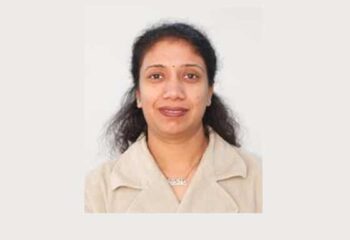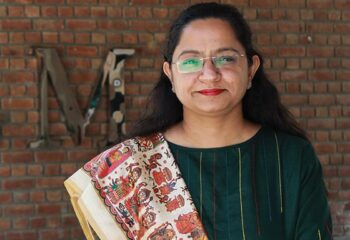School of Computer Science and Engineering (SCSE)
IILM University, Gurugram
School of Computer Science & Engineering is one of the leading school at IILM University that runs the B. Tech in Computer Science & Engineering, specialization in AI/ML, Data Science & Big Data Analytics, Cloud Computing and Cyber Security domains, M.Tech. and Ph.D. programmes.
In recent years, the significance of computing education has grown significantly, and our school stands as a leader, committed to shaping future technology pioneers. Our primary objective is to empower and guide students to become industry leaders in cutting edge computing technologies on both national and global scales. Our esteemed faculty, with extensive experience, is dedicated to providing students with a unique blend of theoretical knowledge and practical skills necessary for success in the ever-changing fields of Computer Science.
In recent years, the significance of computing education has grown significantly, and our school stands as a leader, committed to shaping future technology pioneers. Our primary objective is to empower and guide students to become industry leaders in cutting edge computing technologies on both national and global scales. Our esteemed faculty, with extensive experience, is dedicated to providing students with a unique blend of theoretical knowledge and practical skills necessary for success in the ever-changing fields of Computer Science.
Aligned with the NEP2020 framework, the curriculum at the School of Computer Science & Engineering features a student-centric flexible structure, multidisciplinary learning, compulsory ability enhancement and skill enhancement courses, value-added courses, product design and development, as well as compulsory internships with multiple exit and entry points. Additionally, we employ innovative teaching and learning methodologies such as Outcome-Based Education (OBE), Project-Based Learning (PBL), Interleaving (Context Switching), and Pair Programming to enhance the learning experience.
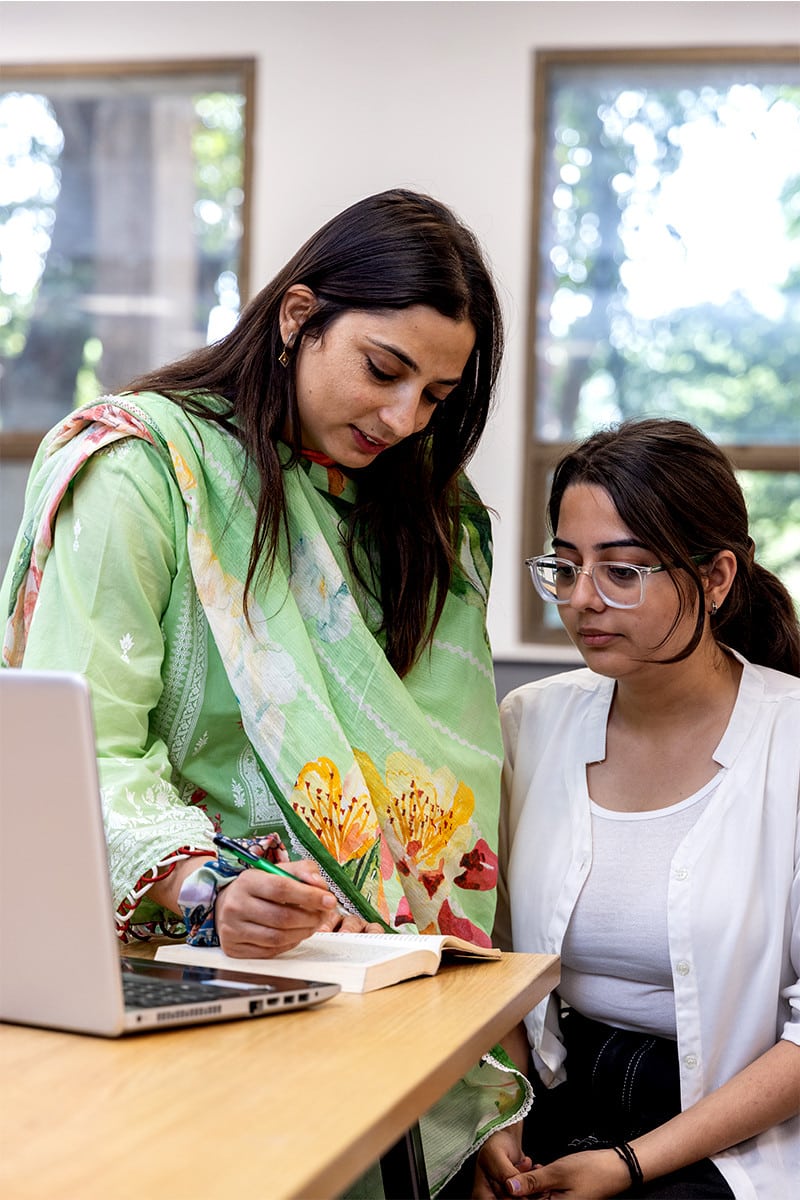
Vision
To lead globally in computer science and engineering education and research, driving innovation and societal impact.
Mission
M1: Provide globally relevant education in computer science and engineering.
M2: Cultivate a culture of inclusivity, diversity, and excellence.
M3: Conduct cutting-edge research to address global challenges.
M4: Foster ethical leadership and responsible innovation in technology.
M5: Promote sustainable development and positive societal impact through technology.

Program Education Objectives (PEOs)
PEO1: To develop the ability to formulate, analyse, and resolve computational challenges by leveraging a strong grasp of mathematical, scientific, engineering principles and contemporary computing methodologies.
PEO2: To acquire the expertise to utilize problem-solving techniques, algorithm design, and emerging technologies such as cloud computing, artificial intelligence, data science, and security in evaluating requirements, formulating technical specifications, and crafting solutions for varied computing challenges.
PEO3: To showcase technical proficiency in computer science, foster collaborative learning, and cultivate teamwork through interdisciplinary projects and professional engagements.
PEO4: To equip the graduates with robust understanding, technical competence, and soft skills necessary to ethically address societal needs and drive sustainable progress in emerging computing domains through continuous learning and adaptation.
Program Outcomes (POs)
Engineering knowledge: Apply the knowledge of mathematics, science, engineering fundamentals, and an engineering specialization to the solution of complex engineering problems.
Problem analysis: Identify, formulate, review research literature, and analyze complex engineering problems reaching substantiated conclusions using first principles of mathematics, natural sciences, and engineering sciences.
Design/development of solutions: Design solutions for complex engineering problems and design system components or processes that meet the specified needs with appropriate consideration for the public health and safety, and the cultural, societal, and environmental considerations.
Conduct investigations of complex problems: Use research-based knowledge and research methods including design of experiments, analysis and interpretation of data, and synthesis of the information to provide valid conclusions.
Modern tool usage: Create, select, and apply appropriate techniques, resources, and modern engineering and IT tools including prediction and modeling to complex engineering activities with an understanding of the limitations.
The engineer and society: Apply reasoning informed by the contextual knowledge to assess societal, health, safety, legal and cultural issues and the consequent responsibilities relevant to the professional engineering practice.
Environment and sustainability: Understand the impact of the professional engineering solutions in societal and environmental contexts, and demonstrate the knowledge of, and need for sustainable development
Ethics: Apply ethical principles and commit to professional ethics and responsibilities and norms of the engineering practice.
Individual and team work: Function effectively as an individual, and as a member or leader in diverse teams, and in multidisciplinary settings.
Communication: Communicate effectively on complex engineering activities with the engineering community and with society at large, such as, being able to comprehend and write effective reports and design documentation, make effective presentations, and give and receive clear instructions.
Project management and finance: Demonstrate knowledge and understanding of the engineering and management principles and apply these to one’s own work, as a member and leader in a team, to manage projects and in multidisciplinary environments.
Life-long learning: Recognize the need for, and have the preparation and ability to engage in independent and life-long learning in the broadest context of technological change.
Computer Science & Engineering graduates will be able to
Employ computing principles, Data Structures, and algorithmic development in system and application programming, employing problem-solving strategies.
Design and deploy applications by utilizing software design patterns, principles, cutting-edge technologies, and computing tools.


